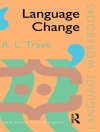Semiotics is long on theoretical, often obscure discourses, but short on applications that demonstrate with clarity the applicability of its methods. This book confronts a challenging object, the circus, and endeavors to describe its performances in ways that explain how circus acts produce meaning and cause a deep emotional involvement for their audiences. The approach is not top-down, such as would be a method that would dogmatically apply a particular theory to fully explain the phenomena in terms of this theory alone. Epistemologically, this book is an example of the bottom-up strategy, which consists of considering first the objects and heuristically calling upon methodological resources in a broad theoretical array to come to grips with the problems that are encountered. Any circus act is a complex event that has cognitive and emotional dimensions. It is also a part of a history and an institution, and cannot be abstracted from its cultural and sociological contexts. Thus the range of relevant theoretical and methodological approaches must include structural semiotics, biosemiotics, pragmatics, socio-semiotics, cultural anthropology, the cognitive sciences, the psychology and sociology of emotions, to name only the most important. But the ultimate focus of this book is to enable the readers to better understand the meaning of circus performances and to appreciate the skills and creativity of this traditional popular art, which constantly renews itself from generation to generation.
Über den Autor
Paul Bouissac, University of Toronto, Canada.












